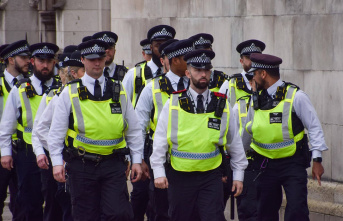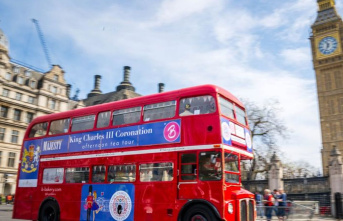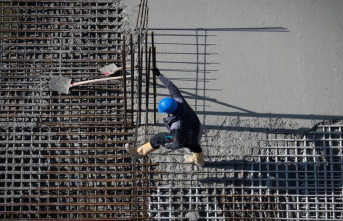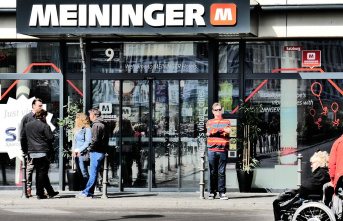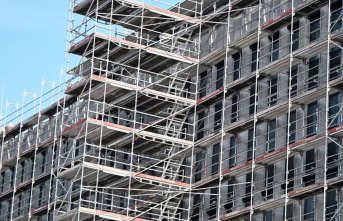According to the Interior Ministry, more than a million people took to the streets in France on Thursday against the government's plans, and the unions even spoke of 3.5 million participants.
In Paris, police fired tear gas and used batons against the crowd. The violence erupted at the head of a mostly peaceful demonstration, with rioters smashing windows and destroying street furniture. Some demonstrators set fire to piles of garbage left uncollected because of the strike. Groups of demonstrators engaged in a game of cat and mouse with the police overnight.
In Bordeaux, the gate of the town hall was set on fire. It's difficult for him to "understand and accept this kind of vandalism," the city's mayor, Pierre Hurmic, told RTL radio on Friday.
The violence that had occasionally occurred during earlier protests also intensified in other cities. In Lorient, western France, the police station became the target of the anger of the demonstrators - especially hooded youths. In Lille in northern France and in Toulouse in the southwest, the police used water cannons against the protesters. The mayor of Rennes in western France spoke of "scenes of chaos" in the city.
In Paris alone, 903 fires were lit, Interior Minister Darmanin said on Friday. There is a "radicalization" on the part of "left-wing extremists" who want to "attack the republic," said Darmanin, who is considered a right-winger within the government led by Prime Minister Elisabeth Borne.
President Macron assured on Friday that he was "available" to the unions. Macron said at a press conference in Brussels, where he was attending the EU summit, that he had signaled his willingness to consult on certain topics such as working conditions or remuneration in certain sectors.
"For the rest and the pension reform," he said, that the Constitutional Council's decision on the reform would first have to be awaited. The Constitutional Council is a court that oversees the constitutionality of laws. But the country should "not stand still," Macron warned. "We keep moving forward."
An end to the demonstrations is also not in sight because of the government's intransigence: the trade unions mobilized again for Tuesday. The three-day visit of the British monarch Charles III planned from Sunday. was therefore canceled for the time being: the visit should be made up for at an undisclosed time, "under conditions that correspond to our friendship," said the Elysée on Friday. Macron spoke of having proposed a possible new visit date in "early summer".
Widespread strikes paralyzed large parts of public life on Thursday. Such restrictions are likely to affect France in the coming days - due to a strike by the air traffic controllers, flights were canceled again.
However, the number of participants was significantly higher than in the previous weeks. It was the first day of protests against the reform since Macron's government resorted to constitutional paragraph 49.3 to enforce the reform.
According to this, a law can be passed without a final vote in Parliament if the government survives a subsequent vote of no confidence. The government narrowly escaped being overthrown on Monday.
CFDT union boss Laurent Berger on Friday called for a six-month break before the reform could be introduced. "Everyone is worried this morning because there was violence that is unacceptable," he told radio station RTL. The situation must now be calmed down "before there is a tragedy".



